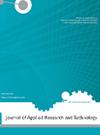Test model for database architectures: an assessment for job search engine systems
Q3 Engineering
Journal of Applied Research and Technology
Pub Date : 2022-07-01
DOI:10.22201/icat.24486736e.2022.20.3.1169
引用次数: 0
Abstract
Data is a fundamental part of information and management systems; thus, controlling its complexity is an essential step nowadays. NoSQL databases adopt new approaches to data management differing from relational structures. For this study, two database systems are considered, MongoDB as a NoSQL data storage model and PostgreSQL as a relational data model, they are compared and evaluated on a job search system. For this purpose, a dataset was defined, and its representation was constructed in databases based on each technology. This process allowed the data modeling in terms of the best practices, then, the development of a test plan prepared the environment for the determination of the comparison metrics of both databases under the methodology specified by the International Software Testing Qualifications Board (ISTQB) and the types of database testing. This study determined that the SQL schema provides greater functionality, that ensures the support of transactions and data integrity, the opposite happened with the NoSQL schemas, resulting in more efficient but lacking functionalities that are characteristic and required for data representation of a consistent system.数据库架构的测试模型:对工作搜索引擎系统的评估
数据是信息和管理系统的基本组成部分;因此,控制其复杂性是当今社会必不可少的一步。NoSQL数据库采用了不同于关系结构的新的数据管理方法。本研究考虑了两个数据库系统,MongoDB作为NoSQL数据存储模型,PostgreSQL作为关系数据模型,并在求职系统上进行了比较和评估。为此,定义了一个数据集,并在基于每种技术的数据库中构建其表示。该过程允许根据最佳实践进行数据建模,然后,测试计划的制定为根据国际软件测试资格委员会(ISTQB)规定的方法和数据库测试类型确定两个数据库的比较指标准备了环境。这项研究确定,SQL模式提供了更大的功能,确保了对事务和数据完整性的支持,而NoSQL模式恰恰相反,导致了更高效但缺乏一致系统的数据表示所需的功能。
本文章由计算机程序翻译,如有差异,请以英文原文为准。
求助全文
约1分钟内获得全文
求助全文
来源期刊

Journal of Applied Research and Technology
工程技术-工程:电子与电气
CiteScore
1.50
自引率
0.00%
发文量
0
审稿时长
6-12 weeks
期刊介绍:
The Journal of Applied Research and Technology (JART) is a bimonthly open access journal that publishes papers on innovative applications, development of new technologies and efficient solutions in engineering, computing and scientific research. JART publishes manuscripts describing original research, with significant results based on experimental, theoretical and numerical work.
The journal does not charge for submission, processing, publication of manuscripts or for color reproduction of photographs.
JART classifies research into the following main fields:
-Material Science:
Biomaterials, carbon, ceramics, composite, metals, polymers, thin films, functional materials and semiconductors.
-Computer Science:
Computer graphics and visualization, programming, human-computer interaction, neural networks, image processing and software engineering.
-Industrial Engineering:
Operations research, systems engineering, management science, complex systems and cybernetics applications and information technologies
-Electronic Engineering:
Solid-state physics, radio engineering, telecommunications, control systems, signal processing, power electronics, electronic devices and circuits and automation.
-Instrumentation engineering and science:
Measurement devices (pressure, temperature, flow, voltage, frequency etc.), precision engineering, medical devices, instrumentation for education (devices and software), sensor technology, mechatronics and robotics.
 求助内容:
求助内容: 应助结果提醒方式:
应助结果提醒方式:


